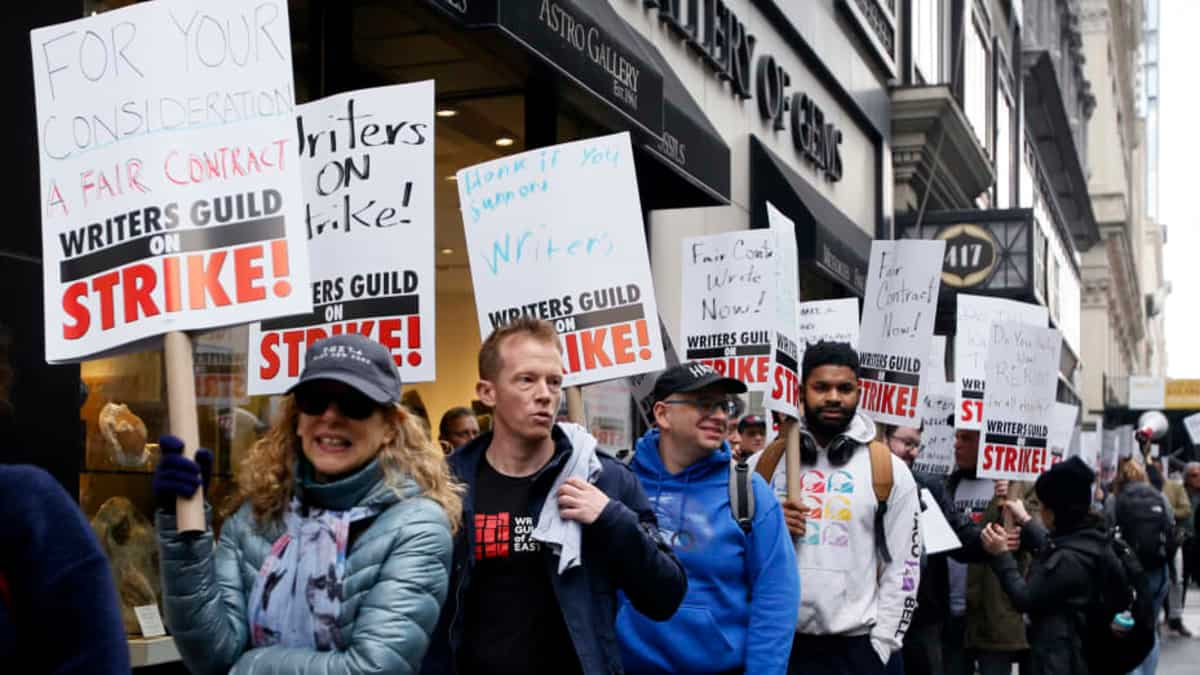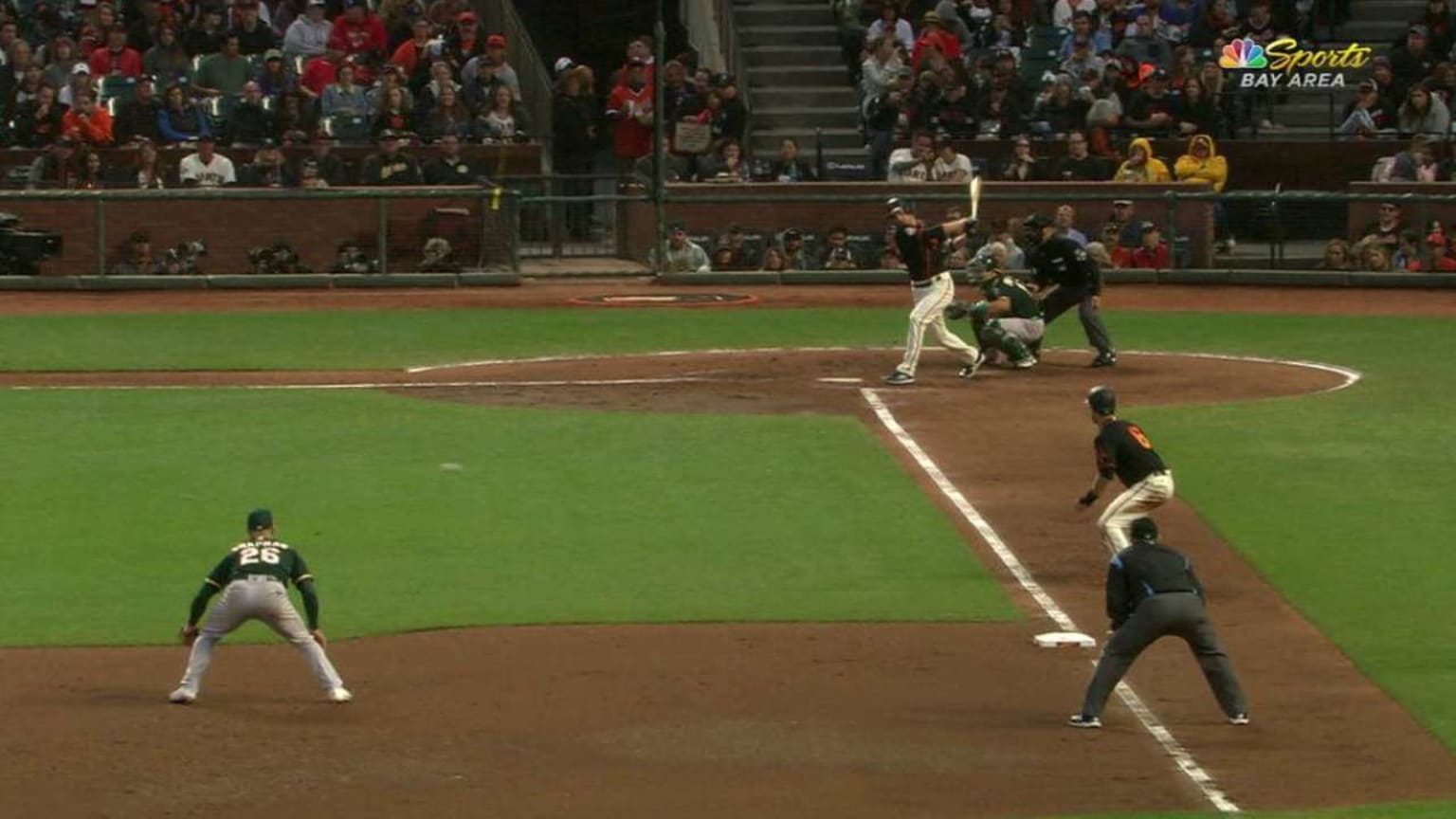Hollywood Shut Down: Writers And Actors On Strike

Table of Contents
The Reasons Behind the Hollywood Strike
The current Hollywood strike represents a significant turning point in the relationship between labor and management in the entertainment industry. Both the WGA and SAG-AFTRA strikes stem from a confluence of factors, primarily centered around fair compensation, the impact of streaming, and the rise of artificial intelligence.
WGA Strike Demands
The Writers Guild of America's strike centers around several key demands, all reflecting the changing landscape of the entertainment industry. The core issues include:
- Fair Streaming Residuals: Traditional television models provided writers with residuals based on reruns and syndication. Streaming services have largely eliminated this revenue stream, leaving many writers struggling to earn a living wage. The WGA seeks a fair and equitable system of residuals that reflects the value of their work on streaming platforms.
- Minimum Staffing Levels: Studios have increasingly relied on smaller writing staffs, leading to overworked and underpaid writers. The WGA demands minimum staffing levels to ensure fair workload distribution and prevent exploitation. Statistics show a significant decline in the average number of writers per project in recent years.
- AI Protections: The rapid advancement of artificial intelligence poses a significant threat to writers' livelihoods. The WGA demands safeguards against the unauthorized use of AI to generate scripts, ensuring that writers receive proper credit and compensation for their work and are not replaced by algorithms. Examples of AI-generated scripts are emerging, raising concerns about job security.
SAG-AFTRA Strike Demands
SAG-AFTRA's strike echoes many of the WGA's concerns, adding issues specific to actors. Their key demands include:
- Fair Wages and Residuals: Similar to writers, actors have seen a significant decline in compensation from streaming projects, compared to traditional television contracts. SAG-AFTRA demands fairer compensation that reflects the value of their work on streaming platforms.
- Self-Tape Auditions: The rise of self-tape auditions has increased actors' workload without providing commensurate compensation. SAG-AFTRA seeks regulation of this practice, ensuring fair compensation for the additional time and expenses involved.
- AI Usage in Performance Replication: The use of AI to replicate actors' performances is a major concern, potentially undermining actors' livelihoods and creative control. SAG-AFTRA seeks strict regulations and protections to prevent the unauthorized use of their likenesses and performances.
- Streaming Compensation: The traditional model of payment for actors, including residuals and backend participation, has largely disappeared in streaming deals. This is a key area of dispute.
The Impact of the Hollywood Shutdown
The combined WGA and SAG-AFTRA strike has caused a significant Hollywood shutdown, with a ripple effect throughout the entertainment industry and beyond.
Economic Consequences
The strike has already resulted in substantial economic losses.
- Job Losses: Thousands of individuals working in related industries, including catering, transportation, and hotel services, have lost their jobs or suffered reduced income. Estimates suggest tens of thousands of jobs are directly or indirectly affected.
- Local Economy Impact: Cities heavily reliant on film production, such as Los Angeles and New York, are experiencing a downturn in economic activity. The impact on local businesses and tourism is substantial.
- Long-Term Economic Consequences: A prolonged strike could have long-term economic ramifications for the entire entertainment industry and related sectors. The uncertainty is causing investors to hesitate and projects to be delayed.
Impact on Film and Television Production
The Hollywood shutdown has brought numerous high-profile productions to a complete halt.
- Halted Productions: Numerous movies and television shows are indefinitely delayed, creating uncertainty for cast, crew, and investors.
- Project Cancellations: Some projects may face cancellation if the strike continues for an extended period.
- Budget Overruns: Even if productions resume, significant budget overruns are likely due to delays and the need to reschedule filming.
- Release Schedule Disruptions: The release schedule for numerous films and television shows will likely be significantly impacted, disrupting the entertainment calendar for months to come.
Potential Solutions and Future Outlook
Resolving the Hollywood strike requires significant compromises from both studios and the unions.
Negotiating Key Issues
Finding common ground will necessitate concessions from all parties.
- Studio Negotiations: Studios will need to acknowledge the changing landscape of the entertainment industry and negotiate fair compensation models for writers and actors in the streaming era.
- Streaming Residuals: Negotiating a fair and equitable system of residuals for streaming projects is crucial. This will require innovative solutions that recognize the value of creative work on streaming platforms.
- AI Usage: Establishing clear guidelines and regulations on the use of AI in scriptwriting and performance replication is vital to protecting the livelihoods of writers and actors.
- Union-Studio Dialogue: Open and productive dialogue between the unions and studio representatives is necessary to reach a mutually acceptable agreement.
The Long-Term Implications for the Entertainment Industry
This Hollywood strike could significantly reshape the future of the industry.
- Contract Changes: The outcome of the strike will likely lead to significant changes in contracts and working conditions.
- Creative Control: The dispute highlights ongoing debates about creative control and the balance of power between studios and creative professionals.
- Worker Rights: The strike underscores the importance of protecting worker rights and ensuring fair compensation in an increasingly complex entertainment landscape.
- Future Strikes: The outcome of this strike will set a precedent and may influence future union actions and negotiations within the entertainment industry.
Conclusion
The Hollywood strike, encompassing both the WGA and SAG-AFTRA strikes, represents a significant turning point in the entertainment industry. The core issues revolve around fair wages, residuals in the streaming era, and the impact of AI on creative jobs. The resulting Hollywood shutdown has far-reaching economic consequences and disrupts film and television production significantly. Resolving this requires substantial negotiations and compromises to address the long-term implications for worker rights, creative control, and the future of entertainment. Stay informed about the ongoing Hollywood strike and its developments. Learn more about the demands of the WGA and SAG-AFTRA and how you can support the striking writers and actors fighting for fair wages and working conditions in the evolving entertainment landscape. Follow the ongoing saga of the Hollywood shutdown and the fight for a fair future in the entertainment industry.

Featured Posts
-
 Komvos Sigiarto Syzitisi Gia Dimereis Sxeseis Kypriako Kai Proedria Ee
May 15, 2025
Komvos Sigiarto Syzitisi Gia Dimereis Sxeseis Kypriako Kai Proedria Ee
May 15, 2025 -
 Leeflang Aangelegenheid Bruins Moet Met Npo Toezichthouder In Overleg
May 15, 2025
Leeflang Aangelegenheid Bruins Moet Met Npo Toezichthouder In Overleg
May 15, 2025 -
 Belgica 0 1 Portugal Resumen Y Goles Del Partido De Futbol
May 15, 2025
Belgica 0 1 Portugal Resumen Y Goles Del Partido De Futbol
May 15, 2025 -
 Cubs Vs Padres In Mesa Spring Training Game Preview Tuesday March 4th 2 05 Ct
May 15, 2025
Cubs Vs Padres In Mesa Spring Training Game Preview Tuesday March 4th 2 05 Ct
May 15, 2025 -
 Gurriels Pinch Hit Rbi Single Delivers Padres 1 0 Victory Over Braves
May 15, 2025
Gurriels Pinch Hit Rbi Single Delivers Padres 1 0 Victory Over Braves
May 15, 2025
